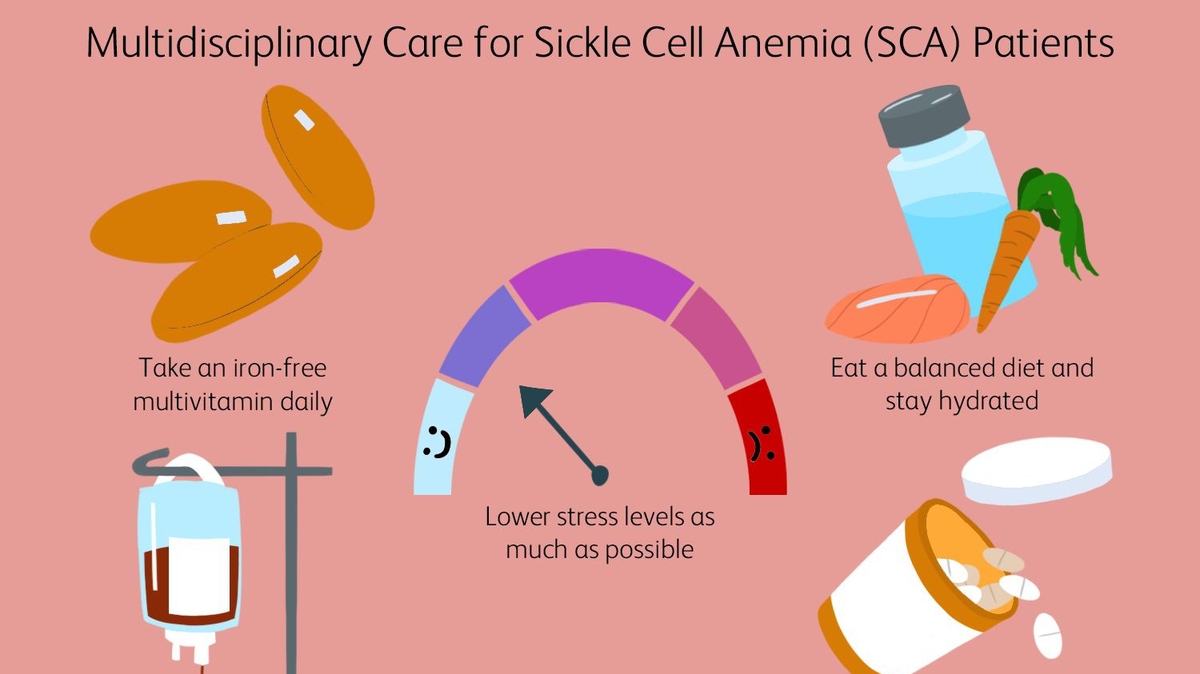
Sickle Cell Disease (SCD) is a group of inherited blood disorders that impact the oxygen-carrying protein haemoglobin in red blood cells. It typically begins around 5 to 6 months of age and can cause attacks of pain, anemia, swelling, bacterial infections, and stroke. While the average life expectancy for SCD patients in developed countries is 40 to 60 years, the condition can be significantly more challenging in underprivileged regions. This is particularly true in certain regions of Africa, where access to advanced healthcare services and treatments can be limited. However, recent research published in Nutrients has highlighted the importance of nutritional treatments in managing SCD, especially in these underprivileged regions of Sub-Saharan Africa.
Nutritional Interventions and SCD
The research, which reviewed numerous nutrition-related studies involving SCD patients in Africa, emphasized the role of nutritional treatments in managing the disease. It indicated that nutritional interventions could improve overall well-being and prevent crises in SCD patients. These interventions can include a wide variety of measures, from simple dietary changes to more complex treatments involving the gut microbiome.
The gut microbiome, a complex network of microorganisms living in our digestive tract, plays a significant role in our overall health. In the case of SCD, the gut microbiome’s influence is substantial. Altered gut microbiome in SCD patients can contribute to inflammation and other complications related to the disease. As such, interventions that seek to balance the gut microbiome can have a profound impact on managing the disease.
African Plants and Mushrooms in SCD Treatment
The review also pointed out the potential use of African plants and mushrooms in managing SCD. These native flora, which have been used in traditional medicine for centuries, could play a significant role in SCD treatment. Although further clinical research is needed to optimize these medicinal plants’ use, the potential for these natural substances to improve the lives of SCD patients is promising.
Advances in SCD Treatment
While nutritional interventions offer a promising avenue for managing SCD, they are not the only treatments available. There are therapeutic treatments such as blood transfusions and hydroxyurea. In 2023, new gene therapies were approved for SCD treatment, marking a significant step forward in the fight against this disease. The U.S. Food and Drug Administration (FDA) approved the first CRISPR therapy for SCD, known as Casgevy, a gene editing treatment made by Vertex Pharmaceuticals and CRISPR Therapeutics.
These advances in treatment, combined with the potential of nutritional interventions and traditional African medicinal plants, highlight the increasing range of options available to SCD patients – even in underprivileged regions. However, to make these treatments as effective as possible, the importance of further clinical nutrition research cannot be overstated. Such research will allow us to better understand the disease and develop even more effective treatments, improving the quality of life for SCD patients worldwide.
